Items
Location is exactly
London (England)
-
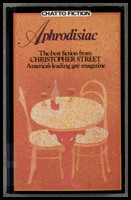 Aphrodisiac : fiction from Christopher Street This anthology of “the best fiction from Christopher Street” was praised for its “literary excellence” by ‘Publishers Weekly’. It compiles eighteen short stories published in “America’s leading gay magazine”, from authors including Jane Rule, Edmund White, Tennessee Williams and Kate Millett. The magazine, named after the location of the 1969 Stonewall Uprising, was founded in 1976 and published monthly until the mid-1990s. As well as original fiction, it featured writing on gay politics and culture, interviews and satirical cartoons. A series of essays about the unfolding AIDS crisis in New York by Andrew Holleran – one of the featured authors in this collection – was later published as ‘Ground Zero’.
Aphrodisiac : fiction from Christopher Street This anthology of “the best fiction from Christopher Street” was praised for its “literary excellence” by ‘Publishers Weekly’. It compiles eighteen short stories published in “America’s leading gay magazine”, from authors including Jane Rule, Edmund White, Tennessee Williams and Kate Millett. The magazine, named after the location of the 1969 Stonewall Uprising, was founded in 1976 and published monthly until the mid-1990s. As well as original fiction, it featured writing on gay politics and culture, interviews and satirical cartoons. A series of essays about the unfolding AIDS crisis in New York by Andrew Holleran – one of the featured authors in this collection – was later published as ‘Ground Zero’. -
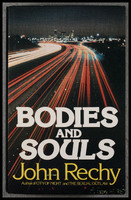 Bodies and souls : a novel Born in El Paso, Texas, to Mexican parents, John Rechy’s (1931-) first novel, ‘City of Night’, was published in 1963 and became a bestseller. Twenty years later, ‘Bodies and Souls’ was published by Carroll & Graf. Written in the style of a classic Hollywood film, the novel is set in Los Angeles and follows a range of characters including porn stars, punks, strippers, television reporters and an evangelist. In addition to his own literary career, Rechy taught creative writing and was also a sex worker. Many of Rechy’s experiences informed his fiction.
Bodies and souls : a novel Born in El Paso, Texas, to Mexican parents, John Rechy’s (1931-) first novel, ‘City of Night’, was published in 1963 and became a bestseller. Twenty years later, ‘Bodies and Souls’ was published by Carroll & Graf. Written in the style of a classic Hollywood film, the novel is set in Los Angeles and follows a range of characters including porn stars, punks, strippers, television reporters and an evangelist. In addition to his own literary career, Rechy taught creative writing and was also a sex worker. Many of Rechy’s experiences informed his fiction. -
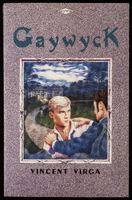 Gaywyck ‘Gaywyck’ was the first novel by New York writer and photo editor Vincent Virga (1942-). The first edition of the book, the one seized during ‘Operation Tiger’, was published in 1980 by Avon and advertised with a quote from ‘New York Magazine’ stating it was the “first gay gothic” novel. As a fan of gothic romance – the title is a play on Anya Seton’s 1944 gothic novel, ‘Dragonwyck’ – Virga wrote the novel with gay characters “to show that genres know no gender”. Set in the nineteenth century at Gaywyck, a Long Island estate owned by the Gaylord family, the story follows Robert Whyte, who is employed to catalogue the library, and his relationship with Donaugh Gaylord. Dark family secrets are revealed, but the story ends happily for the couple. Virga’s second book, ‘A Comfortable Corner’, was also seized during ‘Operation Tiger’.
Gaywyck ‘Gaywyck’ was the first novel by New York writer and photo editor Vincent Virga (1942-). The first edition of the book, the one seized during ‘Operation Tiger’, was published in 1980 by Avon and advertised with a quote from ‘New York Magazine’ stating it was the “first gay gothic” novel. As a fan of gothic romance – the title is a play on Anya Seton’s 1944 gothic novel, ‘Dragonwyck’ – Virga wrote the novel with gay characters “to show that genres know no gender”. Set in the nineteenth century at Gaywyck, a Long Island estate owned by the Gaylord family, the story follows Robert Whyte, who is employed to catalogue the library, and his relationship with Donaugh Gaylord. Dark family secrets are revealed, but the story ends happily for the couple. Virga’s second book, ‘A Comfortable Corner’, was also seized during ‘Operation Tiger’. -
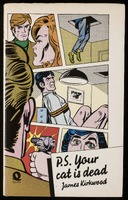 P.S. your cat is dead A darkly comic exploration of the burgeoning relationship between down-on-his-luck actor Jimmy Zoole and a gay cat burglar he finds looting his apartment. This is the third novel from author and playwright James Kirkwood (1924-1989). According to biographer Sean Egan, Kirkwood was inspired by a series of burglaries at his home on West 58th Street, New York. In their 1979-80 catalogue, Philadelphia bookstore Giovanni’s Room described ‘P.S. Your Cat is Dead’ as “our all-time bestselling gay men’s novel”. Kirkwood adapted it into a play in 1975 and in 2002, it was adapted again into a feature film, directed by Steve Guttenberg, which was rather less well-received. Kirkwood’s ‘There Must Be a Pony!’ was also seized in ‘Operation Tiger’.
P.S. your cat is dead A darkly comic exploration of the burgeoning relationship between down-on-his-luck actor Jimmy Zoole and a gay cat burglar he finds looting his apartment. This is the third novel from author and playwright James Kirkwood (1924-1989). According to biographer Sean Egan, Kirkwood was inspired by a series of burglaries at his home on West 58th Street, New York. In their 1979-80 catalogue, Philadelphia bookstore Giovanni’s Room described ‘P.S. Your Cat is Dead’ as “our all-time bestselling gay men’s novel”. Kirkwood adapted it into a play in 1975 and in 2002, it was adapted again into a feature film, directed by Steve Guttenberg, which was rather less well-received. Kirkwood’s ‘There Must Be a Pony!’ was also seized in ‘Operation Tiger’. -
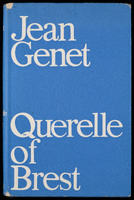 Querelle of Brest Set in the French port town of Brest, bisexual anti-hero Georges Querelle is a young sailor lusted after by his superior officer, by a local corrupt policeman and by the madam of a brothel. But Querelle is also a thief and a serial killer. ‘Querelle of Brest’ by Jean Genet (1910-1986) was first published anonymously in 1947 in a limited edition and illustrated with a series of homoerotic and sexually explicit line drawings by Jean Cocteau. It was prosecuted in France on grounds of indecency in 1954 but cleared in 1956. This edition from 1966 marks its first translation into English by Gregory Streatham. Rainer Werner Fassbinder’s last film, ‘Querelle’ (1982), is an adaptation of the novel. Genet himself was dishonorably discharged from the French Foreign Legion and imprisoned for committing ‘lewd’ (homosexual) acts.
Querelle of Brest Set in the French port town of Brest, bisexual anti-hero Georges Querelle is a young sailor lusted after by his superior officer, by a local corrupt policeman and by the madam of a brothel. But Querelle is also a thief and a serial killer. ‘Querelle of Brest’ by Jean Genet (1910-1986) was first published anonymously in 1947 in a limited edition and illustrated with a series of homoerotic and sexually explicit line drawings by Jean Cocteau. It was prosecuted in France on grounds of indecency in 1954 but cleared in 1956. This edition from 1966 marks its first translation into English by Gregory Streatham. Rainer Werner Fassbinder’s last film, ‘Querelle’ (1982), is an adaptation of the novel. Genet himself was dishonorably discharged from the French Foreign Legion and imprisoned for committing ‘lewd’ (homosexual) acts. -
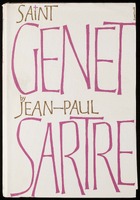 Saint Genet : actor and martyr First published in French in 1952, this biography of Jean Genet (1910-1986) is shown here in English translation. Written by one of the twentieth century’s most influential thinkers and writers Jean-Paul Sartre (1905-1980), this work is the first volume of and introduction to ‘The Complete Works of Genet’. Considering him a man out of his time, Sartre outlines Genet’s life from his birth and abandonment as a foundling child, through his times as a thief, prisoner, vagrant, sex worker and later, playwright and novelist. Genet was also an out gay man who both wrote about and was imprisoned for this part of his life. Two works by Genet, ‘Querelle of Brest’ and ‘Treasures of the Night – The Collected Poems of Jean Genet’, were also seized during the ‘Operation Tiger’ raids.
Saint Genet : actor and martyr First published in French in 1952, this biography of Jean Genet (1910-1986) is shown here in English translation. Written by one of the twentieth century’s most influential thinkers and writers Jean-Paul Sartre (1905-1980), this work is the first volume of and introduction to ‘The Complete Works of Genet’. Considering him a man out of his time, Sartre outlines Genet’s life from his birth and abandonment as a foundling child, through his times as a thief, prisoner, vagrant, sex worker and later, playwright and novelist. Genet was also an out gay man who both wrote about and was imprisoned for this part of his life. Two works by Genet, ‘Querelle of Brest’ and ‘Treasures of the Night – The Collected Poems of Jean Genet’, were also seized during the ‘Operation Tiger’ raids. -
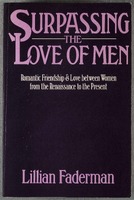 Surpassing the love of men : romantic friendship and love between women from the Renaissance to the present Academic Lillian Faderman (1940-) uses literary and documentary sources to present a history of romantic love between women, one of the first comprehensive studies of its kind. Following initial research on poet Emily Dickinson’s love letters to her sister-in-law Susan Gilbert, Faderman expanded her scope to consider a period of five hundred years and the lives of many women (including those featured in the ‘Scotch Verdict’ case explored in another Faderman work seized during the raids). The book describes how societal attitudes to love between women moved from tolerance (albeit not to women who dressed as men), to prejudice and eventually, to liberatory lesbian feminism. The book, dedicated to Faderman’s partner Phyllis Irwin, is shown here in the UK edition, although it is likely to have been the US William Morrow edition that was seized from Gay’s The Word.
Surpassing the love of men : romantic friendship and love between women from the Renaissance to the present Academic Lillian Faderman (1940-) uses literary and documentary sources to present a history of romantic love between women, one of the first comprehensive studies of its kind. Following initial research on poet Emily Dickinson’s love letters to her sister-in-law Susan Gilbert, Faderman expanded her scope to consider a period of five hundred years and the lives of many women (including those featured in the ‘Scotch Verdict’ case explored in another Faderman work seized during the raids). The book describes how societal attitudes to love between women moved from tolerance (albeit not to women who dressed as men), to prejudice and eventually, to liberatory lesbian feminism. The book, dedicated to Faderman’s partner Phyllis Irwin, is shown here in the UK edition, although it is likely to have been the US William Morrow edition that was seized from Gay’s The Word. -
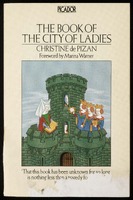 The book of the city of ladies This is quite possibly the most surprising book seized during the raids and certainly is the oldest narrative, first printed in French in 1405. Christine de Pisan (or Pizan) (1364-1430) was a Medieval Italian woman who lived in France and, following the death of her husband, wrote over twenty works to support her family. Using the device of a discussion with ladies called Reason, Rectitude and Justice, this work highlights women’s oppression, including lack of access to education and misogynistic portrayal in texts written by men, in words which have resonance for more contemporary feminist thought. As befits the times, the text is also underpinned by Christian values, and Christine spent her final years living in a convent. It is unclear which edition of the book was seized during the ‘Operation Tiger’ raids.
The book of the city of ladies This is quite possibly the most surprising book seized during the raids and certainly is the oldest narrative, first printed in French in 1405. Christine de Pisan (or Pizan) (1364-1430) was a Medieval Italian woman who lived in France and, following the death of her husband, wrote over twenty works to support her family. Using the device of a discussion with ladies called Reason, Rectitude and Justice, this work highlights women’s oppression, including lack of access to education and misogynistic portrayal in texts written by men, in words which have resonance for more contemporary feminist thought. As befits the times, the text is also underpinned by Christian values, and Christine spent her final years living in a convent. It is unclear which edition of the book was seized during the ‘Operation Tiger’ raids. -
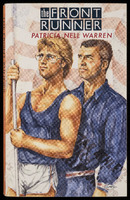 The front runner After the Stonewall Uprising, many mainstream publishers realised they could have commercial success with gay fiction. ‘The Front Runner’ was the first bestselling novel of this era, selling millions of copies when first published in 1974 by William Morrow. The story concerns Billy Sive, a young, gay athlete training for the 1976 Olympics, and his relationship with his older sports coach. Patricia Nell Warren (1936-2019), who was also an athlete, considered the novel’s publication to be a step in her own coming-out process. Latterly, Warren self-published lesbian fiction under the Wildcat Press imprint, fought online censorship laws and was one of the initial fifty nominees for the National LGBTQ Wall of Honor in New York City. The edition seized was probably the 1975 Bantam Books paperback rather than the one on display here.
The front runner After the Stonewall Uprising, many mainstream publishers realised they could have commercial success with gay fiction. ‘The Front Runner’ was the first bestselling novel of this era, selling millions of copies when first published in 1974 by William Morrow. The story concerns Billy Sive, a young, gay athlete training for the 1976 Olympics, and his relationship with his older sports coach. Patricia Nell Warren (1936-2019), who was also an athlete, considered the novel’s publication to be a step in her own coming-out process. Latterly, Warren self-published lesbian fiction under the Wildcat Press imprint, fought online censorship laws and was one of the initial fifty nominees for the National LGBTQ Wall of Honor in New York City. The edition seized was probably the 1975 Bantam Books paperback rather than the one on display here. -
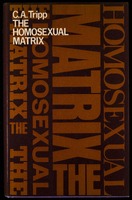 The homosexual matrix First published in America by McGraw-Hill in 1975, the preface to this British edition includes author C.A. Tripp’s (1919-2003) reflections on the book’s initial reception. More positively received than the author had hoped among the scientific community and in much of the media, including ‘Newsweek’, it nevertheless provoked anti-gay moralising in ‘Time’ magazine and ‘The New York Times’, while some papers cancelled their reviews altogether. Tripp, a psychotherapist, fails to mention that the book was also criticised by LGBTQ+ reviewers for its pseudo-scientific categorisation of gay men into ‘types’, its misogyny, and its refusal to engage with gay liberation as a social movement. The striking typographic cover design is by Marcy J. Katz. The edition on display is from the library of actor, author and bookseller Noel Lloyd.
The homosexual matrix First published in America by McGraw-Hill in 1975, the preface to this British edition includes author C.A. Tripp’s (1919-2003) reflections on the book’s initial reception. More positively received than the author had hoped among the scientific community and in much of the media, including ‘Newsweek’, it nevertheless provoked anti-gay moralising in ‘Time’ magazine and ‘The New York Times’, while some papers cancelled their reviews altogether. Tripp, a psychotherapist, fails to mention that the book was also criticised by LGBTQ+ reviewers for its pseudo-scientific categorisation of gay men into ‘types’, its misogyny, and its refusal to engage with gay liberation as a social movement. The striking typographic cover design is by Marcy J. Katz. The edition on display is from the library of actor, author and bookseller Noel Lloyd. -
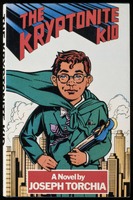 The Kryptonite kid : a novel An affecting novel of one-sided letters to Superman from schoolboy Jerry Chariot and his best friend Robert Sipanno. Filled with a mixture of curiosity and naivety (down to the preservation of Jerry’s childlike spelling and grammar), the letters wrestle with everyday problems of homelife, hero-worship and Catholic schooling as well as questions about what “a queer” is and whether Superman pees out of his “Thing”. Joseph Torchia (1946-1996), a journalist for various newspapers on the West Coast of the US, published one other full-length work and a short story, and wrote two further unpublished novels. He turned to photography later in life. His papers are held at Stanford University.
The Kryptonite kid : a novel An affecting novel of one-sided letters to Superman from schoolboy Jerry Chariot and his best friend Robert Sipanno. Filled with a mixture of curiosity and naivety (down to the preservation of Jerry’s childlike spelling and grammar), the letters wrestle with everyday problems of homelife, hero-worship and Catholic schooling as well as questions about what “a queer” is and whether Superman pees out of his “Thing”. Joseph Torchia (1946-1996), a journalist for various newspapers on the West Coast of the US, published one other full-length work and a short story, and wrote two further unpublished novels. He turned to photography later in life. His papers are held at Stanford University. -
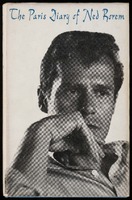 The Paris diary of Ned Rorem Ned Rorem (1923-2022) was an American composer of modern classical music, for which he was awarded the Pulitzer Prize for Music in 1976 and a Grammy in 1989. Rorem was also gay, and documented his life in a series of diaries which began with his ‘Paris Diary’, covering the early 1950s when he was in his late twenties. Famed not only for his musical talent but also his good looks, Rorem was a dedicated socialite who gained entry to the Parisian artistic scene under the mentorship of Vicomtesse Marie-Laure de Noailles. This selection of his diaries shows the extent of Rorem’s connections not only via his writing but also through the inclusion of photographs taken of him by artists such as Man Ray and a portrait illustration by Jean Cocteau.
The Paris diary of Ned Rorem Ned Rorem (1923-2022) was an American composer of modern classical music, for which he was awarded the Pulitzer Prize for Music in 1976 and a Grammy in 1989. Rorem was also gay, and documented his life in a series of diaries which began with his ‘Paris Diary’, covering the early 1950s when he was in his late twenties. Famed not only for his musical talent but also his good looks, Rorem was a dedicated socialite who gained entry to the Parisian artistic scene under the mentorship of Vicomtesse Marie-Laure de Noailles. This selection of his diaries shows the extent of Rorem’s connections not only via his writing but also through the inclusion of photographs taken of him by artists such as Man Ray and a portrait illustration by Jean Cocteau. -
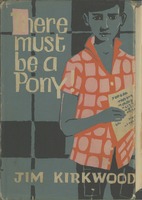 There must be a pony! Written in a style distinctly reminiscent of J.D. Salinger’s ‘The Catcher in the Rye’ (1951), this is the story of “sensitive” sixteen-year-old Josh, his film star mother Rita Cydney, and her relationship with the mysterious Ben. Its queer content is largely subtextual, but a 1963 write-up in the ‘Mattachine Review’ by Gene Damon (pseudonym of legendary lesbian bibliographer Barbara Grier) noted its “sensitive handling of a boy’s first comprehension of homosexuality, with the aid of an older, well-presented man”. ‘There Must Be a Pony!’ was adapted into a television drama in 1986, starring Elizabeth Taylor as Rita. James Kirkwood (1924-1989) stated in an interview that the book was based on his own relationship with his mother, actress and silent film star Lila Lee, about whom he said, “She should have had puppies or kittens, not a kid”. Kirkwood’s ‘'P.S. Your Cat is Dead’ was also seized in ‘Operation Tiger’.
There must be a pony! Written in a style distinctly reminiscent of J.D. Salinger’s ‘The Catcher in the Rye’ (1951), this is the story of “sensitive” sixteen-year-old Josh, his film star mother Rita Cydney, and her relationship with the mysterious Ben. Its queer content is largely subtextual, but a 1963 write-up in the ‘Mattachine Review’ by Gene Damon (pseudonym of legendary lesbian bibliographer Barbara Grier) noted its “sensitive handling of a boy’s first comprehension of homosexuality, with the aid of an older, well-presented man”. ‘There Must Be a Pony!’ was adapted into a television drama in 1986, starring Elizabeth Taylor as Rita. James Kirkwood (1924-1989) stated in an interview that the book was based on his own relationship with his mother, actress and silent film star Lila Lee, about whom he said, “She should have had puppies or kittens, not a kid”. Kirkwood’s ‘'P.S. Your Cat is Dead’ was also seized in ‘Operation Tiger’. -
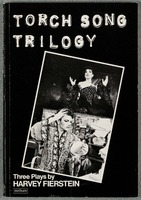 Torch song trilogy : three plays ‘Torch Song Trilogy’ has three acts titled ‘International Stud,’ ‘Fugue in a Nursery’ and ‘Widows and Children First!’ Each deals with a different phase in the life of Arnold Beckoff, a gay, Jewish drag queen and torch singer in 1970s and 1980s New York. Receiving criticism from some for upholding ‘family values’, for others, the trilogy’s exploration of gay marriage and adoption was radical during a time of conservative backlash. Harvey Fierstein (1954-) won a Tony Award for Best Play in 1983 as well as for Best Performance by a Leading Actor. First published in 1981 by the Gay Presses of New York, this edition was published in the UK to tie in with its West End premiere at Albery Theatre (now the Noël Coward Theatre) in 1985. Fierstein has since blazed a trail for queer representation on stage and screen.
Torch song trilogy : three plays ‘Torch Song Trilogy’ has three acts titled ‘International Stud,’ ‘Fugue in a Nursery’ and ‘Widows and Children First!’ Each deals with a different phase in the life of Arnold Beckoff, a gay, Jewish drag queen and torch singer in 1970s and 1980s New York. Receiving criticism from some for upholding ‘family values’, for others, the trilogy’s exploration of gay marriage and adoption was radical during a time of conservative backlash. Harvey Fierstein (1954-) won a Tony Award for Best Play in 1983 as well as for Best Performance by a Leading Actor. First published in 1981 by the Gay Presses of New York, this edition was published in the UK to tie in with its West End premiere at Albery Theatre (now the Noël Coward Theatre) in 1985. Fierstein has since blazed a trail for queer representation on stage and screen. -
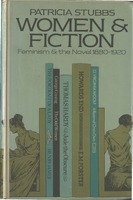 Women and fiction : feminism and the novel, 1880-1920 First published in 1979, this academic monograph was reissued as a Methuen University Paperback in 1981. Somewhat enigmatically referred to in Gay’s The Word’s list of seized books as ‘Women fiction’, it is one of the more unexpected items to be confiscated by Customs, who seized four copies in October 1984. Patricia Stubbs discusses the relationship between literary depictions of women and the roles and possibilities available to them in the late nineteenth and early twentieth centuries. As the copy on display here demonstrates, the book was also available in academic libraries. This is Senate House Library’s own copy and has been heavily marked up by studious readers.
Women and fiction : feminism and the novel, 1880-1920 First published in 1979, this academic monograph was reissued as a Methuen University Paperback in 1981. Somewhat enigmatically referred to in Gay’s The Word’s list of seized books as ‘Women fiction’, it is one of the more unexpected items to be confiscated by Customs, who seized four copies in October 1984. Patricia Stubbs discusses the relationship between literary depictions of women and the roles and possibilities available to them in the late nineteenth and early twentieth centuries. As the copy on display here demonstrates, the book was also available in academic libraries. This is Senate House Library’s own copy and has been heavily marked up by studious readers. -
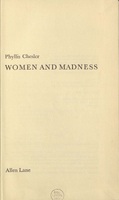 Women and madness Since publication in 1972, this feminist work on women’s psychology has sold over 2.5 million copies. Psychologist Phyllis Chesler (1940-) interviewed women who had been psychiatry or psychotherapy patients and wove their experiences into a book which explores the ways in which women are stigmatised, abused and oppressed by a patriarchal medical establishment. The book is held in multiple UK academic libraries. It is unclear which edition of the book was seized during ‘Operation Tiger’ – the Allen Lane edition is shown here – but more likely it was the 1973 version from the US mass market publisher Avon Books. Chesler sued the owners of Avon for publishing the book with differences from her original text.
Women and madness Since publication in 1972, this feminist work on women’s psychology has sold over 2.5 million copies. Psychologist Phyllis Chesler (1940-) interviewed women who had been psychiatry or psychotherapy patients and wove their experiences into a book which explores the ways in which women are stigmatised, abused and oppressed by a patriarchal medical establishment. The book is held in multiple UK academic libraries. It is unclear which edition of the book was seized during ‘Operation Tiger’ – the Allen Lane edition is shown here – but more likely it was the 1973 version from the US mass market publisher Avon Books. Chesler sued the owners of Avon for publishing the book with differences from her original text.
